Shaping the Future of Cultural and Creative Industries: Skills Challenges and Opportunities in European Regions
29/01/2025
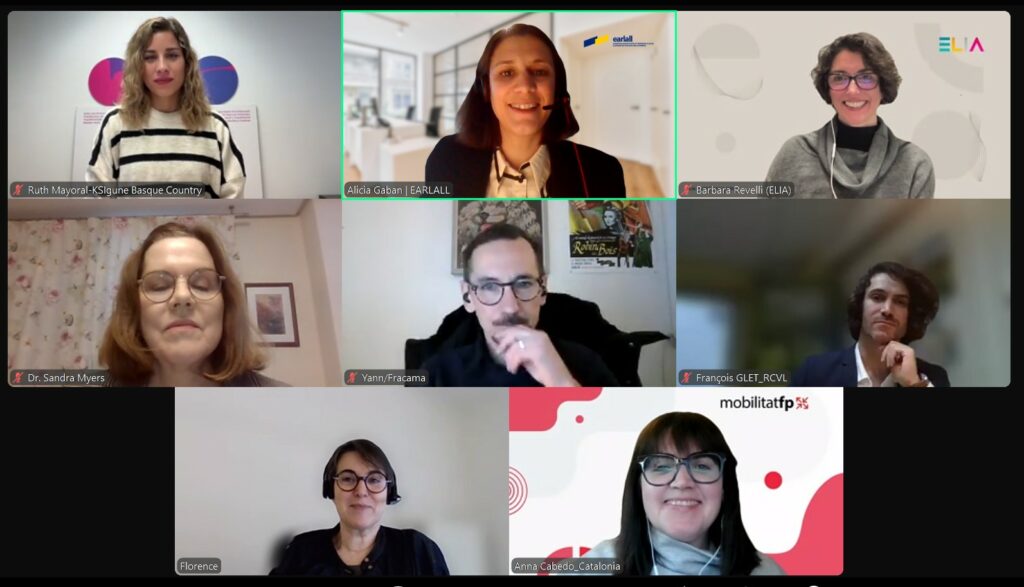
EARLALL continues with its series of webinars focused on exploring the skills challenges and opportunities in different sectors (agriculture, Care, EU blue economy and Textiles, Clothing, Leather, and Footwear (TCLF), among others) across European regions. These webinars are promoted by the EARLALL Working Group on Skills and Labour Market.
On January 28, 2025, EARLALL hosted a webinar focusing on the skills challenges and opportunities within the Cultural and Creative Industries (CCIs) across European regions. The event gathered 40 participants, including regional representatives and experts, to discuss strategies for skills development and sectoral growth. The webinar inspired action and collaboration, enabling CCIs to thrive amidst transformation and continue enriching Europe’s cultural and economic landscape.
Cultural and Creative Industries (CCIs): A Sector in Transition
Anna Cabedo, from the Regional Ministry of Education and VET, Catalonia & EARLALL WG Skills and Labour Market leader, acting as the moderator, welcomed participants and introduced the sector context. The Cultural and Creative Industries encompass a wide array of sub-sectors, including architecture, archives, libraries, museums, artistic crafts, audiovisual arts (e.g., film, television, video games, multimedia), cultural heritage, design, fashion, festivals, music, performing arts, publishing, and visual arts. These industries contribute significantly to Europe’s economic and social fabric, employing 8 million workers across 1.2 million enterprises, of which 99% are SMEs or micro-enterprises.
Anna Cabedo then welcomed the first speaker, Barbara Revelli, Head of Programmes at the ELIA Artschools and cultural member of the creative sector’s Blueprint Project, CYANOTYPES, who offered an overview of the sector panorama. Barbara highlighted the critical role of arts and creativity in driving innovation. She stressed the necessity for collaboration among various stakeholders within the CCIs to address challenges such as a lack of awareness about essential skills and the need for a transversal and transformative approach. Barbara introduced the CYANOTYPES project, which aims to develop a training framework to keep creative skills relevant and renewable. She announced that a call would be launched in March to open the framework’s content for piloting. Additionally, she discussed the Creative Pact for Skills, a European initiative designed to enhance the quality of the CCIs. She finished by inviting participants to join the Creative Skills Week which will take place 22-26 September in Prague.
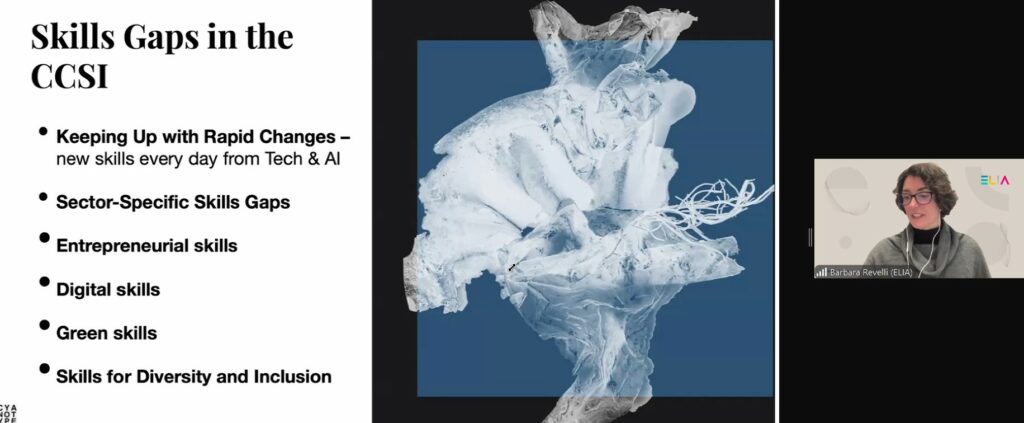
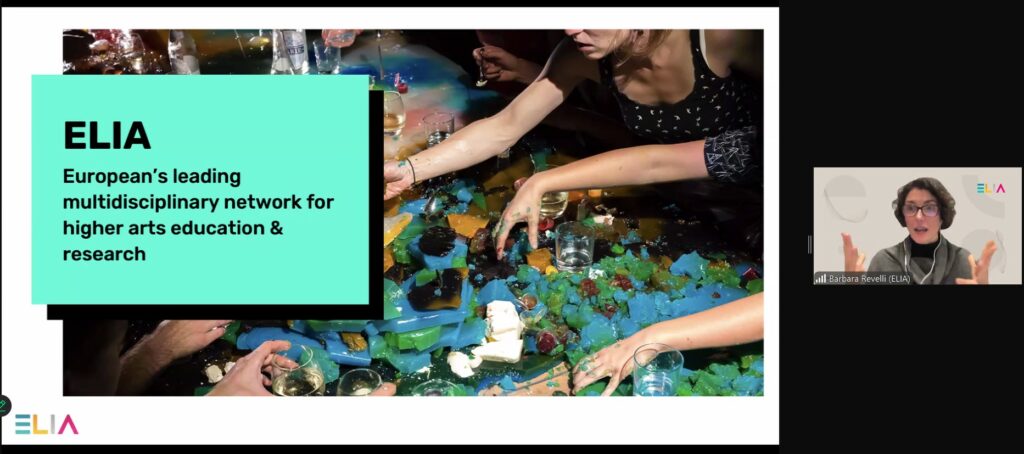
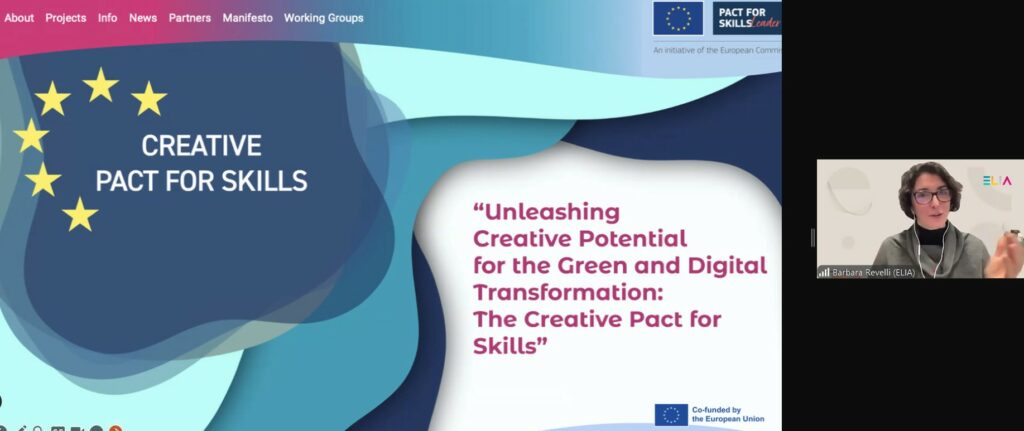
EARLALL Regions sharing CCI challenges and opportunities
The regional panel included examples from the Basque Country, Centre Val de Loire and Castilla y León regions, highlighting various initiatives and projects at the regional level aimed at improving the CCI, including vocational training programs, digital approaches, and awareness campaigns to reach the right people and promote the importance of skills development.
KSIgune: Strengthening cultural and creative industries through education and collaboration
Ruth Mayoral Lopez, representing Euskampus Fundazioa in the Basque Country, introduced KSIgune Regional Skills Partnership, the Basque Higher Education & Research Cluster for the Cultural and Creative Industries (CCIs). She highlighted the sector’s growth, with a 10% increase in CCI companies (16,122) and a 5% rise in employment (48,161 jobs). Since its launch in 2020, KSIgune has served as a strategic tool, fostering training, research, and transfer projects through collaboration between higher education institutions and CCI stakeholders. Its four key worklines—Monitoring, Training, Transfer, and Dissemination & Internationalisation—have facilitated 53 connection projects, mobilized over 600 students, and engaged 3,233 teaching and research staff, strengthening the region’s cultural and creative ecosystem.
Centre-Val de Loire Region’s cultural overview
François Glet, Regional Project Manager – Bourges European Capital of Culture 2028, Centre-Val de Loire Region and Yann RYK, Territory policy officer, FRACAMA, presented an overview of the CCIs in France’s Centre-Val de Loire region. They shared key employment data, noting that the cultural sector employs 10,000 salaried and 7,000 non-salaried workers, representing 1% and 5% of regional employment, respectively. While the region is below the national average in cultural employment, it boasts a higher-than-average share in performing and visual arts. Despite the significant impact of the COVID-19 crisis on cultural employment, the region has surpassed pre-crisis levels in its recovery. Notably, the region has integrated a CCI sector strategy into its Economic Development, Innovation, and Internationalization Plan, including culture as a pillar for economic growth for the first time.
François Glet, discussed the deployment of a new contract for the music industry in the region since 2022, involving the CNM, FRACAMA, and Assange. He also mentioned the SONIC – Strategic Opportunities for New Innovative Changes in Music Policies Interreg Europe Programme project (approved under the third call). The project will tackle the lack of policy support for SMEs in the music industry, limiting their competitiveness and growth compared to larger companies and regions outside Europe with robust innovation practices.
Yann RYK from FRACAMA presented the “Contrat de Filière Musiques Actuelles,” a policy tool led by the French Government and defined in each region of France. He highlighted the importance of cooperation and support for the music industry, detailing various activities and projects undertaken.
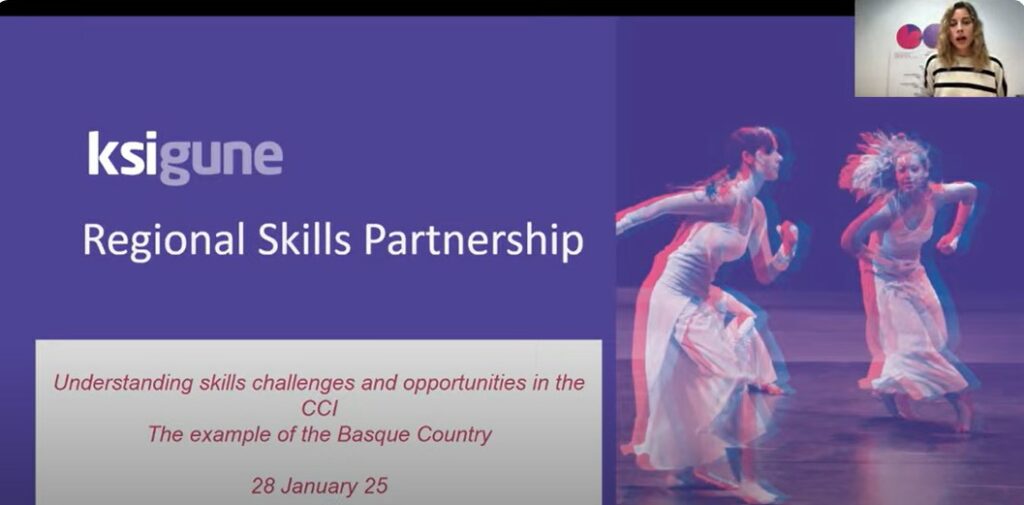
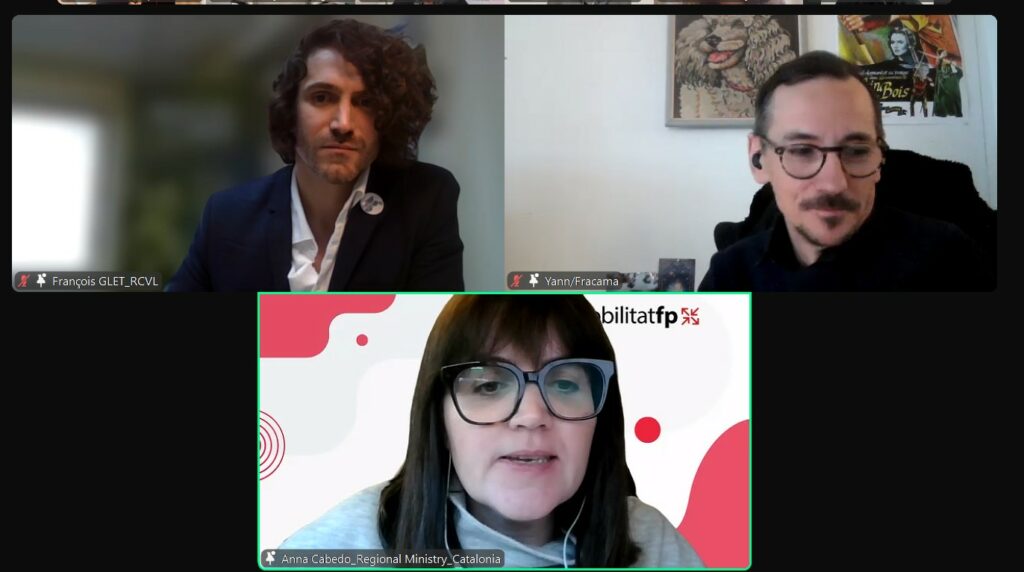
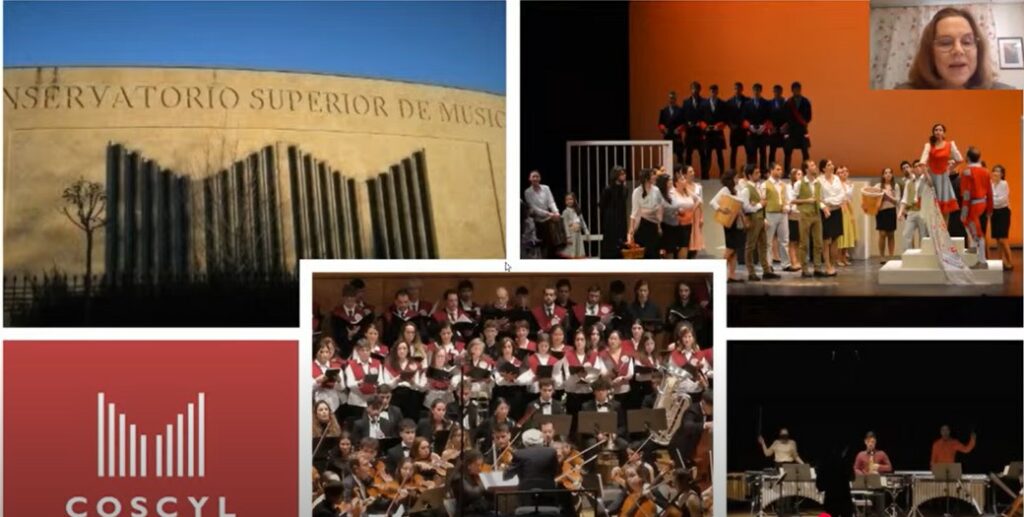
Challenges in Spain’s cultural industries: Castilla y León
Dr. Sandra Myers Brown, Conservatory of Music of Castilla y León, explained the challenges faced by the CCIs in Spain, particularly in the Castilla y León region. She emphasized the need for alignment between cultural and educational ministries, the importance of partnerships, and the necessity for administrative staff to facilitate internships and practical training. Dr. Sandra Myers Brown also highlighted the need for higher artistic education institutions to enhance their training in leadership and entrepreneurship. She concluded by expressing the need for a stronger cultural industry and the responsibility of educational institutions to train students to contribute effectively to this sector.
The webinar underscored the importance of skills development, collaboration, and strategic planning in strengthening the Cultural and Creative Industries across European regions. The insights shared by various regional representatives provided valuable perspectives on addressing current challenges and leveraging opportunities within the sector.
The event served as a platform for knowledge exchange, highlighting successful initiatives and innovative approaches to fostering skills development in CCIs. As European regions continue to navigate economic, digital, and sustainability transitions, fostering strong partnerships between education, industry, and policy will be key to ensuring a thriving cultural and creative ecosystem.
The next sectoral webinar will be focused on the Advanced Manufacturing Industries across European Regions
Resources:
Additional resources:
- https://elia-artschools.org
- https://cyanotypes.website
- https://mailchi.mp/8b56a07472c2/show-interest-in-the-cyanotypes-pilots (Call for Pilots – interst)
- https://pact-for-skills.ec.europa.eu/index_en
- https://www.creativepactforskills.eu




